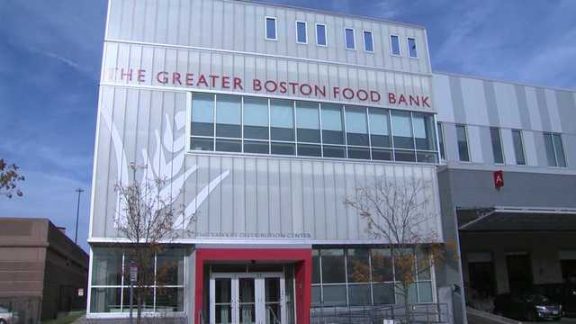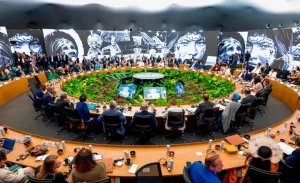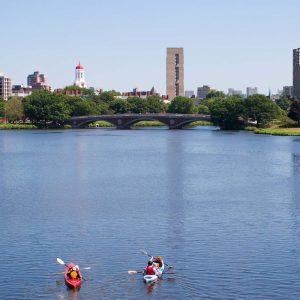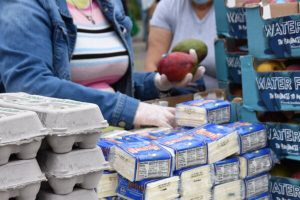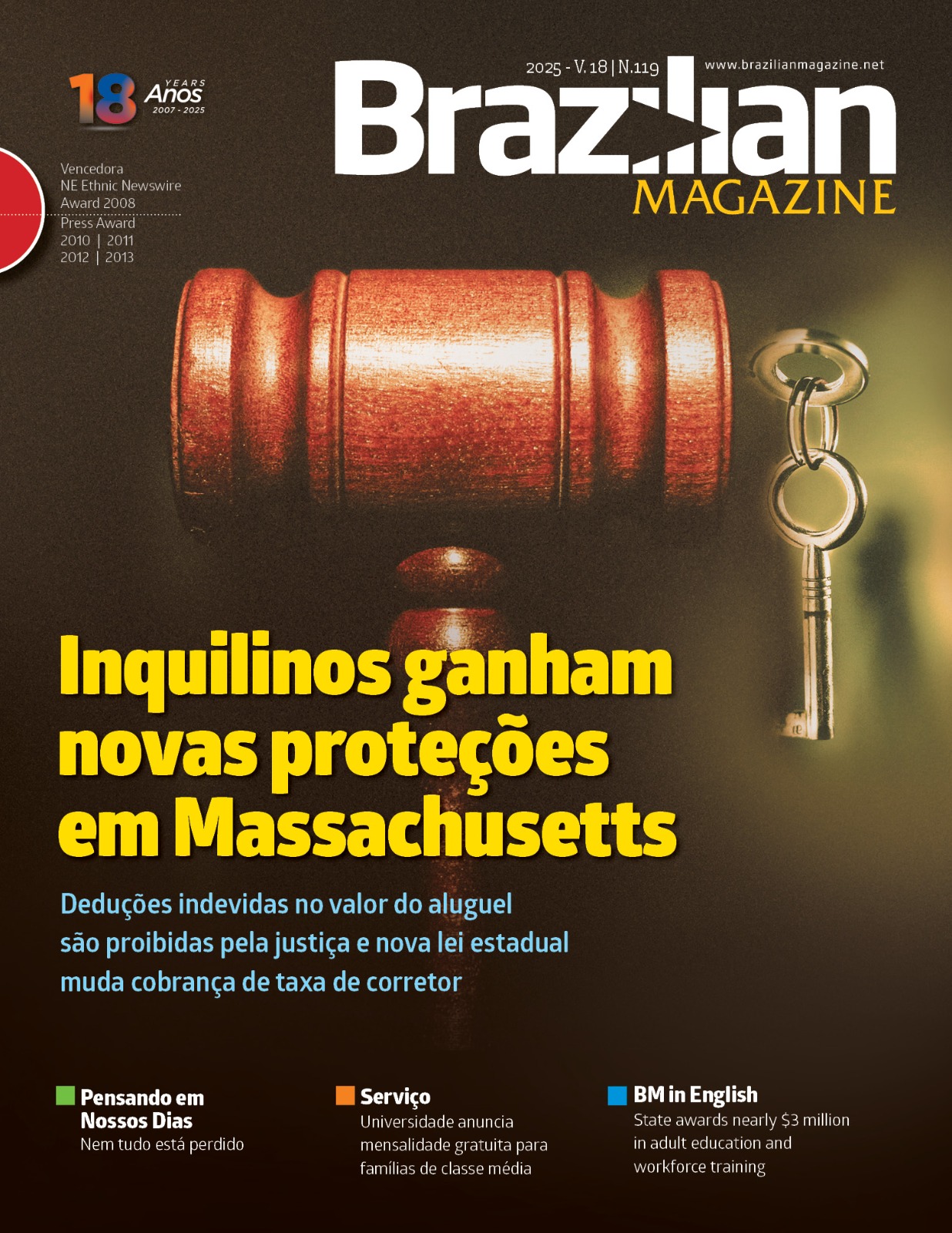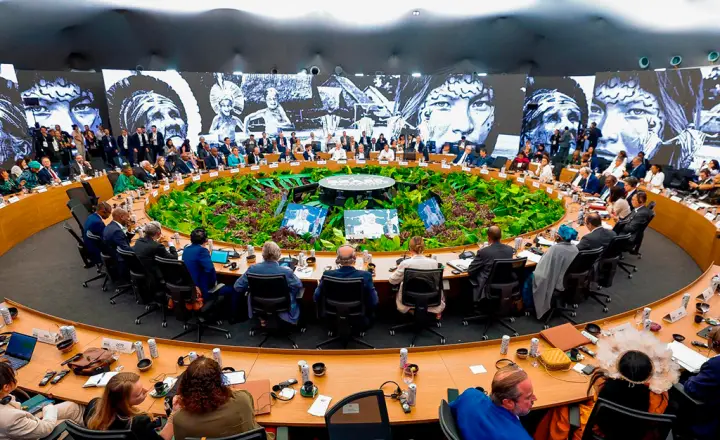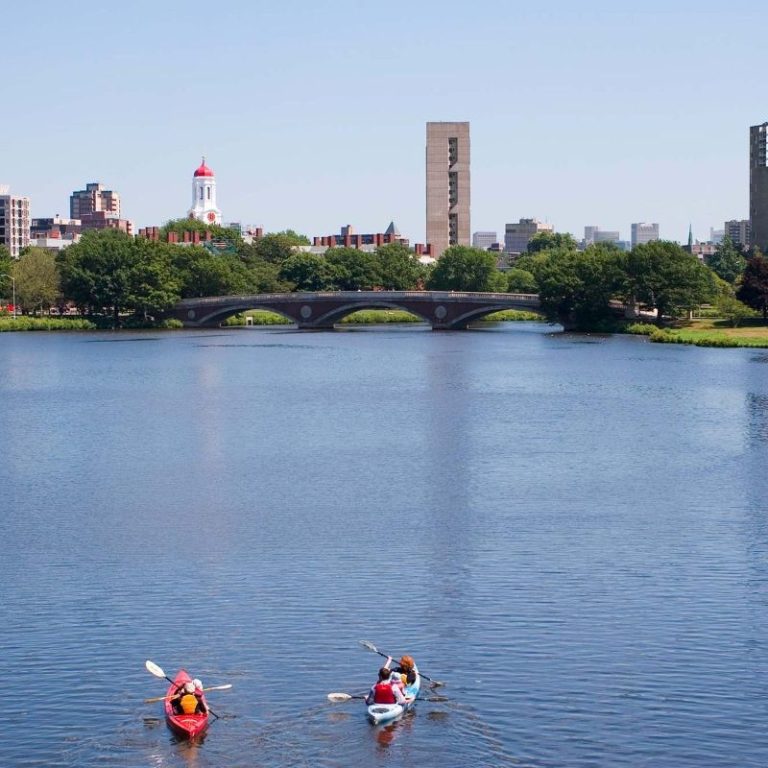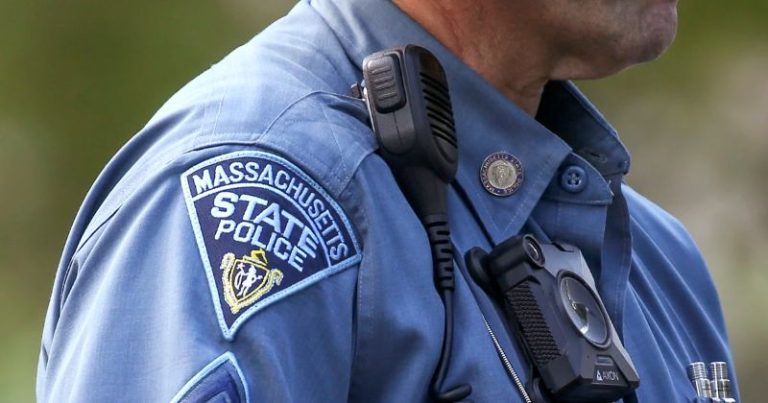Boston’s Mayor Michelle Wu gathered with partners of the Greater Boston Collaborative Food Access Hub for a one-year progress update on the Hub’s operations as partners work to address food insecurity exacerbated by the federal government shutdown and delay in SNAP benefits. In its first year of operations, the Food Access Hub served an average of 20,000 individuals every month, distributing almost 62,000 pounds of produce, on average, every single week. In one year, organizations collaborating through the Food Access Hub have distributed over 1,700,000 pounds of food to residents in need, which is the equivalent of almost 1.5 million meals made possible. The Food Access Hub also recovered 164,000 pounds of food that would have otherwise been wasted, rescuing the equivalent of 4 tractor trailers filled with food from being sent to landfills.
The Greater Boston Collaborative Food Access Hub is a 27,000 square-foot warehouse space managed by the YMCA of Greater Boston, in partnership with 8 anti-poverty, food access, and food recovery organizations, with support from the City of Boston’s Office of Food Justice and Mass General Brigham and serves as a regional center for recovering, storing, and distributing fresh and healthy food to address food insecurity across Boston. Located at 30 Northampton Street in Roxbury, the Hub supports the Wu Administration’s strategy of unlocking larger-scale recovery from food manufacturing and distribution companies not previously possible without this scale of storage and collaboration, while simultaneously supporting expanded access to fresh produce for food distribution sites around the City.
“In the face of growing food insecurity, our city departments and community partners have worked tirelessly to protect our residents and coordinate all available resources,” said Mayor Michelle Wu. “I am grateful for the many partners who have gone above and beyond to collaborate. The Greater Boston Collaborate Food Access Hub has helped expand our capacity to ensure every family in Boston has access to the nutritious food they need to be happy, healthy, and safe.”
The emergency food system in Boston faced unprecedented demand during the pandemic and remains strained today. As food prices continue to soar, and Boston faces some of the highest grocery prices in the country, the need for storage — particularly cold storage — is critical. The Food Access Hub takes direct action on several recommendations from the Office of Food Justice’s Food Recovery Assessment Report, released in November 2024, which identified an increased need for collaboration and cold storage infrastructure among organizations serving food insecure residents. In addition to supporting the Hub, the Office of Food Justice also awarded 12 grants, totaling $500,000, to support neighborhood-based food distribution non-profits in procuring expanded cold storage for perishable food, including recovered and donated food.
The Food Access Hub partnership dovetails with action earlier this month by the City and the Boston Foundation to launch a Fund to keep food on the table for residents impacted by the federal uncertainty surrounding SNAP funding. Two weeks ago, the City and the Foundation seeded the effort with an initial $1 million, and thanks to the Boston Foundation and generous partners, commitments to the Fund have grown to $3.2 million. To-date, $2 million has been distributed to the Greater Boston Food Bank and more than 60 food pantries and community-based organizations across Boston and the region. As part of this effort, the YMCA of Greater Boston has also received funds to work with a dozen partners to deliver more than 10,000 grocery gift cards to residents to purchase food at local stores.


